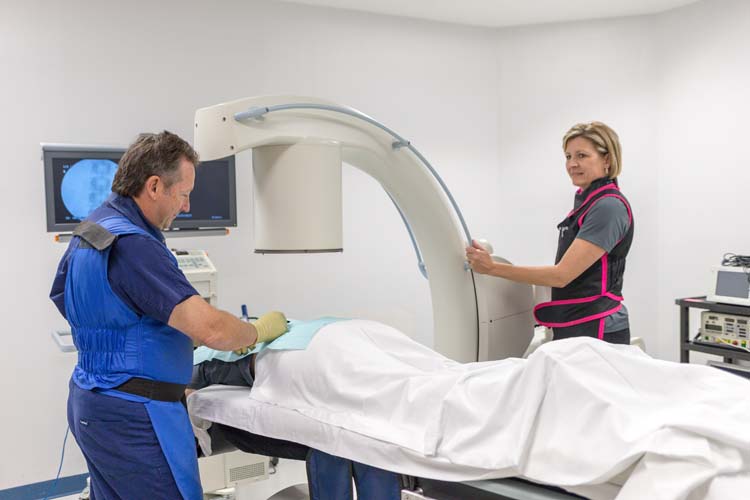
While it is certain chronic pain is one of the most common problems facing Americans, the number of people affected is not clear.
The National Center for Complementary and Integrative Health at the National Institutes of Health, for example, says there are 25.3 million Americans suffering from chronic pain, while WebMD, evidently using a different definition, puts the figure at more than 100 million.
Meanwhile, the National Institute of Neurological Disorders claims 80 percent of all adults will experience chronic pain in their lifetime and adds that it becomes increasingly common with age.
Dr. Harold Cordner at Florida Pain Management Associates in Sebastian puts the problem into more localized terms, saying “it amazes me how many people we see a day that can barely go up the aisles at Publix.”
“We see about 10 new patients a day,” Cordner adds. “It amazes me there’s that many people who have pain so bad that they have to go see a specialist for it.”
NIH says “chronic pain is often defined as any pain lasting more than 12 weeks,” but again, timelines – and even descriptions – vary widely.
The Centers for Disease Control adds there is no single test that can measure chronic pain with any kind of precision.
About the only area of general agreement is that health professionals – from primary care doctors to surgeons to pain specialists like Cordner – have to rely mainly on their patients’ self-descriptions of the type, timing and location of their pain.
Those descriptions, according to the Institute of Neurological Disorders, currently provide the best clues as to the cause or causes of chronic pain as well as the best available roadmap for treating it.
It’s here that Cordner takes at least some of his fellow physicians to task.
“In medical school you make a diagnosis and then you treat,” he says, “but in a lot of these pain cases, they treat, treat, treat, treat, treat, but no one ever makes the diagnosis of what’s causing the pain.”
Indeed, according to Cordner, many of his patients have already been to chiropractors, had massages, had acupuncture and had physiotherapy but, he claims, no one ever diagnosed where their pain was actually coming from.
And, Cordner claims, the lack of an accurate diagnosis often leads to ineffective or inappropriate treatment.
Citing compression fractures of the spine as an example, Cordner says “the traditional treatment from primary care physicians might be [the patient goes to] the hospital and then they put you into [physical] therapy.”
But Cordner bluntly asks, “Why would you go to therapy? You broke your spine. If you broke your arm, would you be exercising? No. They’d put you in a cast and you rest it for six weeks to let it heal.”
Cordner says he often employs a technique called “kyphoplasty” to treat compression fractures. In a nutshell kyphoplasty attempts to replace bone lost to osteoporosis or various cancers – by filling that void with a solid, cement-like mixture.
(Kyphoplasty has become increasingly available nationwide but NIH warns that “studies have questioned the effectiveness of these procedures.”)
Cordner treats chronic pain brought on by a wide variety of problems. In addition to compression fractures he cites pinched nerves, shingles, unsuccessful back surgeries, degenerative disks, arthritis, hip and knee pain, neck pain and a host of other joint and musculoskeletal problems.
“If your primary care physician does some treatment or some physical therapy and it takes your pain away, that’s great. Then you don’t need me. But if your pain persists despite treatment or despite time, and it’s not getting better, then I think you need the help of someone who’s a pain specialist.”
Clearly not lacking self-confidence, Cordner goes on to claim “even other the pain management physicians send their really, really tough cases to us to treat.”
The American Chronic Pain Association states, “It is actually possible to increase your level of functioning and quality life while reducing your sense of suffering” from chronic pain, but it sternly warns “the road is not always an easy one.”
Dr. Harold Cordner is with Florida Pain Management just north of Steward Heath’s Sebastian River Medical Center campus. The address is 13815 U.S. 1. The phone number is 772-388-9998. The website is www.floridapain.com.



